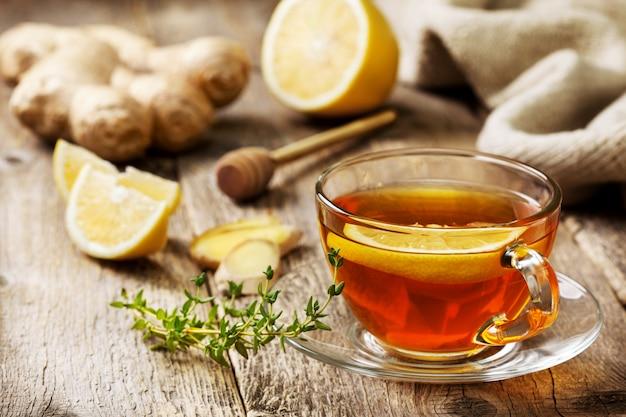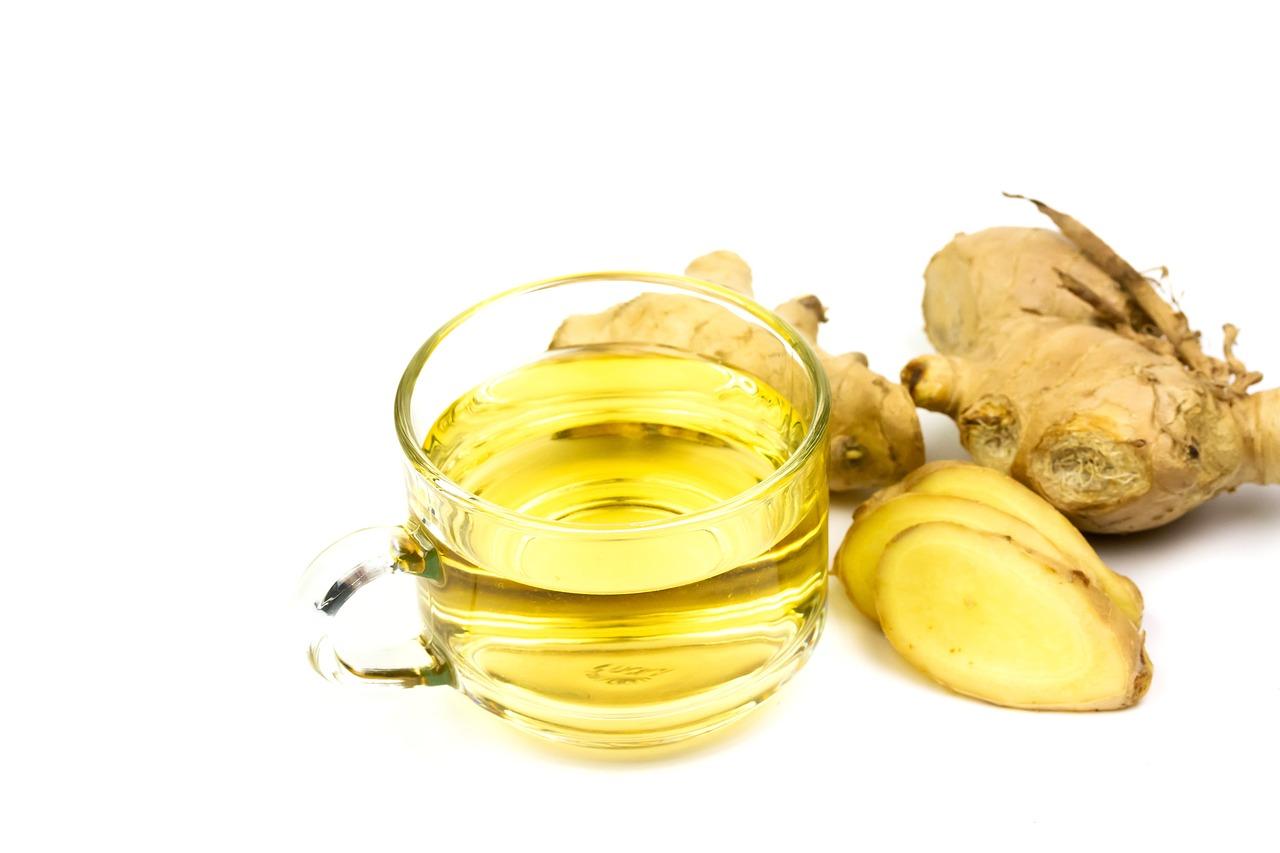Ginger ale has long been hailed as a soothing beverage, known to calm upset stomachs and provide relief from nausea. But what about its potential benefits for those suffering from irritable bowel syndrome (IBS)? In this blog post, we’ll explore the relationship between ginger ale and IBS, shedding light on whether this fizzy drink could be a helpful addition to your IBS management strategy.
IBS, a common gastrointestinal disorder, affects millions of individuals worldwide. It is characterized by symptoms such as abdominal pain, bloating, diarrhea, and constipation. While there is no cure for IBS, various strategies can help alleviate its symptoms and improve overall well-being. One popular option is ginger, a natural spice prized for its anti-inflammatory and digestive properties.
So, is ginger ale a suitable choice for individuals with IBS? Can it provide relief during flare-ups and offer comfort to your sensitive gut? Let’s delve deeper into the potential benefits of ginger ale for IBS and explore whether it’s worth incorporating into your daily routine.

Is Ginger Ale a Friend or Foe for IBS Sufferers?
Having to deal with the unpredictable ups and downs of Irritable Bowel Syndrome (IBS) can be a real rollercoaster ride. One day, you’re feeling fine and dandy, and the next, you’re curled up in pain, desperately searching for relief. Among the many remedies out there, ginger ale often finds its way into the conversation. But is this fizzy beverage a friend or foe for those with IBS? Let’s dive into the carbonated depths and uncover the truth.
The Ginger Factor: Good or Bad
Ginger, the superstar of the plant world, has long been hailed for its potential health benefits. From soothing upset stomachs to reducing inflammation, this spicy root has become a go-to natural remedy for various digestive issues. So naturally, when the IBS monster strikes, ginger is one of the first things people consider.
Taming the IBS Beast: How Ginger Ale Can Help
Ginger ale, despite its name, does not always contain real ginger. However, some brands do include ginger extract or flavorings that can offer some relief to IBS symptoms. The gingerol compounds found in ginger have been shown to have anti-inflammatory properties, which could potentially calm the irritated gut and ease discomfort.
Bubbly Brilliance: The Gastrointestinal Effects
The fizzy nature of ginger ale can also provide a surprising benefit to those with IBS. The carbonation in ginger ale can help to alleviate bloating and promote belching, which can bring temporary relief to uncomfortable gas buildup in the intestines. So, if you’re feeling like a human balloon, ginger ale might just be your bubbly savior.
The Not-So-Glamorous Truth: Sugar Content
Now, here comes the sobering reality check. While ginger ale may bring a ray of hope for IBS sufferers, we can’t ignore the elephant in the room: the sugar content. Most commercially available ginger ale brands are packed with added sugars, which can spell disaster for those with sensitive tummies. Excessive sugar consumption can trigger IBS symptoms, leading to further discomfort and potential flare-ups.
The Art of Moderation: Finding a Balance
As with any food or drink, moderation is key. If you decide to give ginger ale a whirl, it’s essential to pay attention to your body’s response. Remember, not all ginger ales are created equal. Some brands offer sugar-free or low-sugar alternatives, which could be a more stomach-friendly option. And if you’re feeling adventurous, you can even try making your own ginger-infused sparkling water at home!
Bottom Line: Consult Your Gut
When it comes down to it, determining whether ginger ale is good or bad for IBS is highly individualized. Some folks might find it soothing and helpful, while others might experience worsening symptoms. Your best bet is to listen to your gut (literally!) and consult with a healthcare professional who can provide personalized advice based on your specific needs and sensitivities. After all, your journey to finding relief is like a choose-your-own-adventure story—trial and error, twists and turns, and ultimately, finding what works best for you.
So, the next time you find yourself debating whether to crack open that can of ginger ale in the pursuit of temporary IBS relief, remember the delicate balance between the potential benefits and possible drawbacks. Cheers to your gut’s happiness, with or without the bubbly embrace of ginger ale!

FAQ: Is Ginger Ale good for IBS?
Can Covid trigger IBS
The COVID-19 virus primarily affects the respiratory system, and while there is no direct link between COVID-19 and Irritable Bowel Syndrome (IBS), it is important to note that stress and anxiety caused by the pandemic can exacerbate IBS symptoms.
Does ginger irritate the stomach
On the contrary! Ginger has been used for centuries to soothe gastrointestinal discomfort. It has natural anti-inflammatory properties that can help calm an irritated stomach. However, individual reactions may vary, so it’s always best to listen to your body.
Is ginger good for IBS flare-ups
Absolutely! Ginger has shown promise in easing IBS symptoms, particularly during flare-ups. Its anti-inflammatory properties can help reduce bloating, cramping, and nausea. Sipping on some ginger ale or adding ginger to your meals might provide some much-needed relief.
What does IBS pain feel like
IBS pain can vary from person to person, but it is often described as cramping or abdominal discomfort. Some may experience sharp or stabbing pains, while others may feel a constant dull ache. The intensity and duration of the pain can also fluctuate.
Does ginger affect bowel movements
Ginger’s impact on bowel movements can differ among individuals. For some, ginger may stimulate bowel movements and ease constipation. Others may find that it has a mild laxative effect. If you’re unsure how ginger will affect your bowel movements, it’s wise to start with a small amount and observe your body’s response.
Are bananas good for IBS
Yes, bananas are generally well-tolerated by those with IBS. They are not only a good source of nutrients but also contain soluble fiber, which can help regulate bowel movements. However, if you find that bananas trigger your symptoms, it’s best to avoid them.
What are the three types of IBS
The three main types of IBS are:
- IBS with constipation (IBS-C): Characterized by infrequent or difficult bowel movements.
- IBS with diarrhea (IBS-D): Marked by frequent, loose, or watery stools.
- Mixed IBS (IBS-M): A combination of both constipation and diarrhea.
Does Gingerale settle the stomach
Ginger ale has long been used as a digestive aid and can help settle an upset stomach. Its ginger content is believed to calm nausea and reduce indigestion. Just make sure to opt for ginger ale with real ginger and lower sugar content for optimal relief.
Do cold drinks trigger IBS
Cold drinks themselves may not trigger IBS symptoms directly, but some individuals with IBS find that extreme temperatures can aggravate their digestive system. It’s worth experimenting to see if your body reacts differently to cold or room-temperature beverages.
Is Orange Juice OK for IBS
Orange juice can be a bit tricky for individuals with IBS. It is high in fructose, which can cause problems for some people. Drinking small quantities in moderation may be tolerated, but it’s best to listen to your body and observe how it responds to orange juice.
How do I calm my intestines
To calm your intestines, try the following tips:
- Stay hydrated: Drinking enough water helps maintain healthy digestion.
- Manage stress: Practice relaxation techniques such as deep breathing or meditation.
- Eat mindfully: Avoid trigger foods and eat at a slower pace, chewing your food thoroughly.
- Exercise regularly: Engaging in physical activity can aid digestion and reduce stress.
What causes IBS flare-ups
IBS flare-ups can be triggered by various factors, including:
- Certain foods (e.g., spicy or fatty foods, caffeine, alcohol)
- Stress and anxiety
- Hormonal changes
- Infections or illness
- Changes in gut bacteria
Can you drink sodas with IBS
While carbonated beverages like soda can cause gas and bloating in some individuals with IBS, it’s not a universal trigger. Opting for low-sugar or sugar-free options and consuming them in moderation may help minimize any adverse effects.
What can trigger IBS
IBS triggers can vary from person to person, but common factors include:
- Stress and anxiety
- Certain foods (e.g., dairy, gluten, spicy foods)
- Hormonal changes
- Medications
- Infections or gastroenteritis
What is the best drink for IBS
There isn’t a one-size-fits-all answer, as the best drink for IBS depends on the individual. However, some beverages that may be soothing for those with IBS include herbal teas (such as peppermint or chamomile), ginger tea, and plain water. Experimentation is key to finding what works best for you.
Where is IBS pain located
IBS pain is typically located in the lower abdomen. The exact location can vary, but it often occurs in the area between the belly button and the pubic bone. However, some individuals may experience pain throughout the entire abdomen.
What can I drink to soothe IBS
To soothe IBS, try these drink options:
- Peppermint tea: Known for its calming effect on the digestive system.
- Chamomile tea: Has anti-inflammatory properties and may alleviate stomach discomfort.
- Ginger tea: Can aid digestion and reduce nausea.
- Warm water with lemon: May help stimulate digestion and relieve bloating.
Can drinking a lot of water help IBS
Staying hydrated by drinking an adequate amount of water is essential for overall health, including digestion. Water helps soften stools and prevents constipation, which can alleviate some IBS symptoms. However, it’s important to note that excessive water intake may worsen symptoms for certain individuals, so moderation is key.
What is ginger ale good for
Ginger ale, with its ginger content, is known for its ability to soothe an upset stomach, reduce nausea, and aid digestion. It can provide a refreshing and calming beverage option, particularly for those experiencing digestive discomfort.
What drinks to avoid with IBS
Though triggers can vary, some drinks that may exacerbate IBS symptoms in individuals include:
- Caffeinated beverages: Coffee, tea, and energy drinks can stimulate the digestive system and increase bowel movements.
- Alcoholic drinks: Alcohol can irritate the gut and worsen symptoms.
- Carbonated drinks: The bubbles in soda and carbonated beverages can lead to gas and bloating.
Does ginger ale really help with stomach aches? – Big Questions – (Ep. 44)
Indeed, ginger ale has been a go-to beverage for many people seeking relief from stomach aches. Its ginger content may assist in soothing stomach discomfort, reducing nausea, and providing a refreshing taste. Just remember to opt for ginger ale with actual ginger and lower sugar content for maximum benefit.
How can I settle my IBS flare-up
To settle an IBS flare-up, consider these strategies:
- Don’t panic: Stress can worsen symptoms, so stay calm and opt for relaxation techniques.
- Follow the right diet: Identify trigger foods and avoid them during flare-ups.
- Stay hydrated: Drink enough water to maintain proper hydration.
- Consider medication: Discuss with your doctor the potential use of medications to alleviate symptoms during flare-ups.
What time of day is IBS worse
The severity of IBS symptoms can vary throughout the day, but many individuals experience worse symptoms in the morning or after meals. This may be due to the body’s response to breakfast or increased activity in the digestive system following a meal.
Is Cranberry Juice Good for IBS
While cranberry juice is generally safe for individuals with IBS, it’s important to be mindful of the sugar content and potential reactions to certain fruits. Moderation is key, and observing how your body responds to cranberry juice can help you determine if it suits your digestive system.
Does ginger ale help with the stomach
Yes, ginger ale can be helpful in soothing an upset stomach. Ginger, with its natural properties, has been used for centuries to alleviate nausea and digestive discomfort. Therefore, reaching for a glass of ginger ale may provide some relief for your stomach woes.